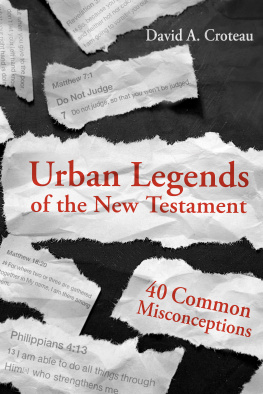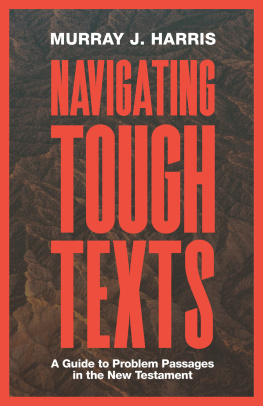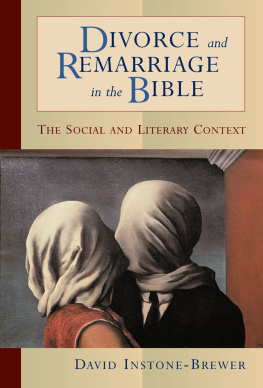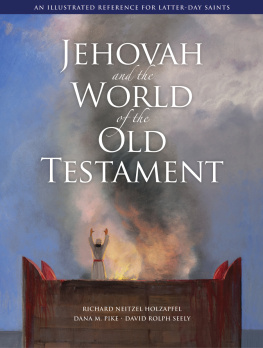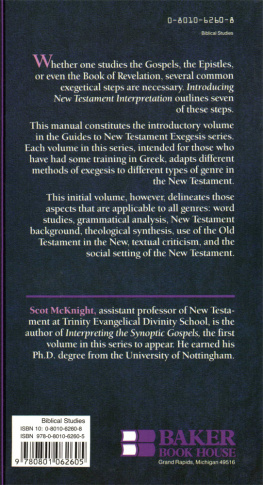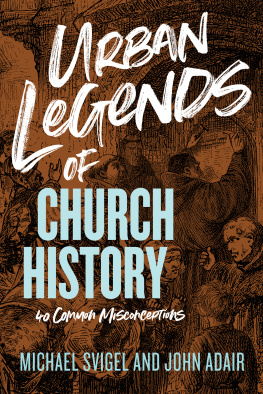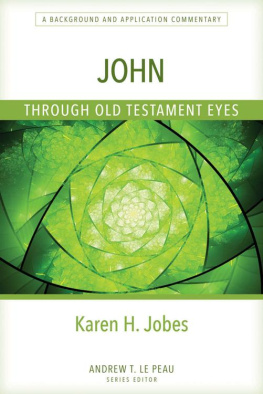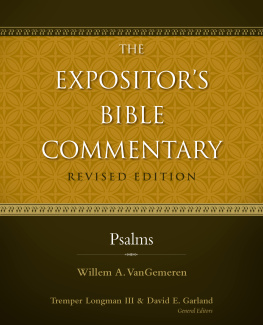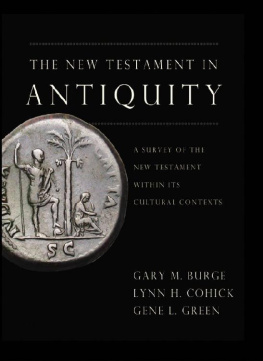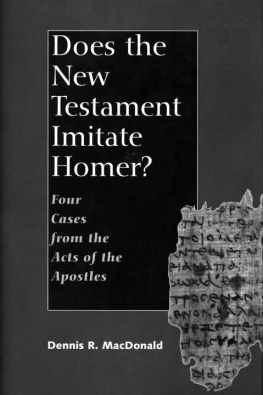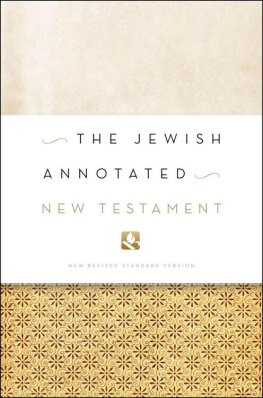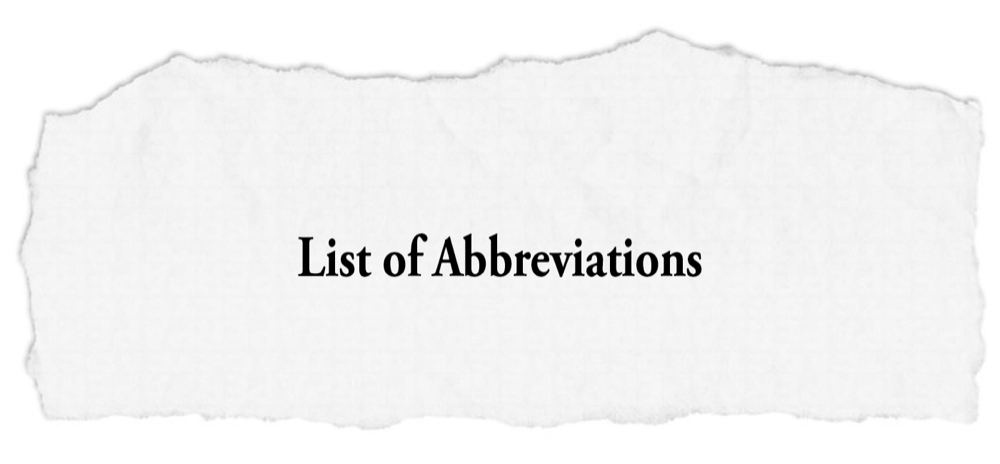It is a pleasure to commend this book that lays to rest forty common New Testament urban legends. No doubt it will ruffle the feathers of many believers, including some pastors and even scholars, but it is hard to fault Croteaus careful analysis of each urban legend, the relevant texts, contexts, and array of significant scholarly insights. But perhaps even more important than correcting these urban legends is the careful reading of Scripture that the book models. Let us not blindly accept handed-down beliefs about the New Testament; rather, examine the text carefully for the truth of Gods Word. This compelling and engaging book helps us all to do just that.
Constantine R. Campbell , associate professor of New Testament,
Trinity Evangelical Divinity School
We live in an age of biblical illiteracy; that much is undeniable. But as someone once noted, its not just what you dont know, its also what you do know that just aint so! David Croteau does a great job in Urban Legends of winsomely, kindly, and carefully correcting misconceptions about the Bible. Here is a book that will not just interest, but inform!
Greg Gilbert , senior pastor,
Third Avenue Baptist Church, Louisville, Kentucky
Evangelicals rightly insist that Scripture only is our source of truth. Yet our interpretations of Scripture sometimes owe more to tradition than to the Bible itself. David Croteau unmasks some common interpretations that have only dubious biblical support. But he does more than debunk these myths of interpretation; he also helps us understand what these passages really are saying and why they matter. Perhaps just as importantly, he encourages all of us to be more careful and attentive readers of Scripture.
Douglas Moo , Kenneth T. Wessner Professor of New Testament,
Wheaton College
As evangelicals who believe that Scripture is inspired and authoritative, we want to preach and teach what the Bible truly teaches. Croteau takes on a number of urban legends and unpacks for us the meaning of a number of texts by paying attention to context and to historical background. Even if one were to disagree with Croteau here or there, one will be challenged to support alternative interpretations. This is a valuable resource full of wise advice and persuasive exegesis, and I hope it is read widely.
Thomas R. Schreiner , James Buchanan Harrison Professor of
New Testament Interpretation and professor of biblical theology
and associate dean of the School of Theology,
The Southern Baptist Theological Seminary
Although we prefer not to acknowledge it, all of us hold fervently to certain beliefs about what the Bible teaches that, on closer inspection, turn out to be false. No one has done a better job of demonstrating this than David Croteau in this excellent and informative book. Not everyone will enjoy reading it, as human nature typically recoils from admitting error and being forced to give up long-held and deeply cherished interpretations. But there is no virtue in error, and no Christian can be edified by it. Read this book closely and humbly. Even though you may not agree with everything Croteau asserts, your grasp of Gods Word will undoubtedly increase.
Sam Storms , lead pastor for preaching and vision ,
Bridgeway Church, Oklahoma City, Oklahoma
Urban Legends of the New Testament: 40 Common Misconceptions
Copyright 2015 by David Croteau
B&H Publishing Group
Nashville, Tennessee
All rights reserved
ISBN: 9781433680120
Dewey Decimal Classification: 225.6
Subject Heading: BIBLE. N.T.CRITICISM, INTERPRETATION, ETC. \ BIBLE. N.T.STUDY AND TEACHING \ BIBLE. N.T.COMMENTARIES
Unless otherwise indicated, Scripture quotations are taken from the Holman Christian Standard Bible, Copyright 1999, 2000, 2002, 2003, 2009 by Holman Bible Publishers. Used by permission. Holman Christian Standard Bible, Holman CSB, and HCSB are federally registered trademarks of Holman Bible Publishers.
Scripture quotations marked ESV are taken from The Holy Bible, English Standard Version, copyright 2001 by Crossway Bibles, a division of Good News Publishers. Used by permission. All rights reserved.
Scripture quotations marked ISV are taken from The Holy Bible: International Standard Version. Release 2.0, Build 2015.02.09. Copyright 19952014 by ISV Foundation . ALL RIGHTS RESERVED INTERNATIONALLY. Used by permission of Davidson Press, LLC.
Scripture quotations marked KJV are taken from the Holy Bible, King James Version, which is in the public domain.
Scripture quotations marked NET are taken from the New English Translation, the NET Bible copyright 19962006 by Biblical Studies Press, L.L.C. http://netbible.com All rights reserved.
Scripture quotations marked NIV are taken from THE HOLY BIBLE, NEW INTERNATIONAL VERSION, NIV Copyright 1973, 1978, 1984, 2011 by Biblica, Inc. Used by permission. All rights reserved worldwide.
Scripture quotations marked NKJV are taken from the New King James Version. Copyright 1982 by Thomas Nelson. Used by permission. All rights reserved.
Scripture quotations marked (NLT) are taken from the Holy Bible, New Living Translation, copyright 1996, 2004, 2007 by Tyndale House Foundation. Used by permission of Tyndale House Publishers, Inc., Carol Stream, Illinois 60188. All rights reserved.
Scripture quotations marked YLT are taken from Youngs Literal Translation of the Bible, which is in the public domain.
Printed in the United States of America
1 2 3 4 5 6 7 8 9 10 20 19 18 17 16 15
VP
Acknowledgments
T his book is the culmination of so many conversations with friends, so many articles and books read, and so many classroom dialogues that thanking everyone is beyond my ability. Several students have assisted in research for this volume: Rory Chapman, Mark Dickson, Scott Holcombe, James MacDonald, Zack Melder, Eric Mitchell, Jordan Steffaniak, and Phil Thompson. Shane Kraegers help in researching many of the bibliographies was invaluable. Many of the students in courses I taught at Liberty University, particularly New Testament Backgrounds, were helpful dialogue partners.
The opportunity afforded by the pastors at Heritage Baptist Church in Lynchburg, Virginia, to teach a Bible study class covering twenty-six of these topics was extremely helpful. The feedback gained throughout the course by the members (and some pastors) was priceless.
Leo Percer, the managing editor, has been helpful in reading through the entire manuscript and making many fruitful comments along the way. Others who have provided helpful feedback include Larry Dixon, John Harvey, Rob Stansberry, Tom Medeiros, Jeff Philpott, Mike Naylor, and Gaylen Leverett. Kerry Poulton has earned my gratitude for her assistance as well.
As always, my family (Ann, Danielle, and D. J.) has been understanding as I worked through the manuscript. May the Lord bless this effort to accurately interpret his Word.
List of Abbreviations
BDAGBauer, Walter. A Greek-English Lexicon of the New Testament and Other Early Christian Literature . 3rd ed. Revised and edited by F. W. Danker, W. F. Arndt, and F. W. Gingrich. Chicago: University of Chicago Press, 2000.
BECNTBaker Exegetical Commentary on the New Testament
Louw and NidaLouw, Johannes P., and Eugene A. Nida, eds. Greek-English Lexicon of the New Testament Based on Semantic Domains . 2 vols. New York: United Bible Societies, 1988, 1989.

